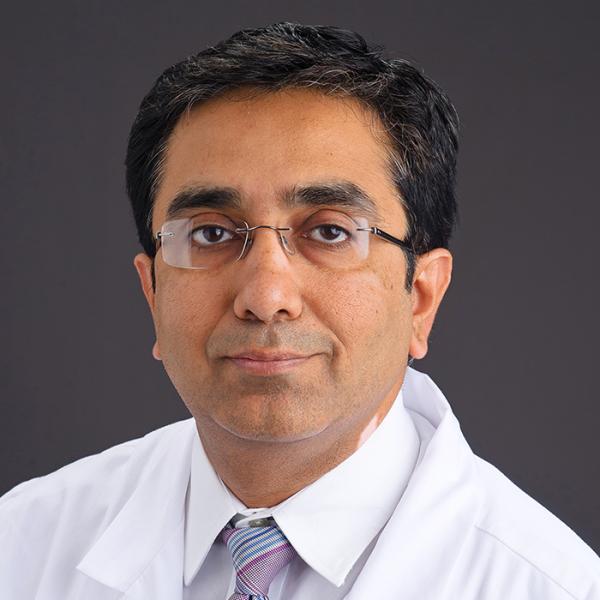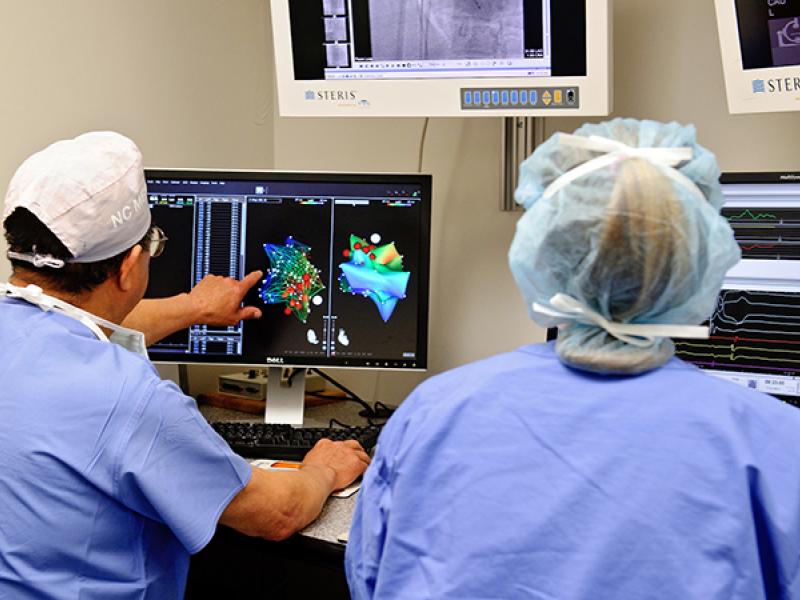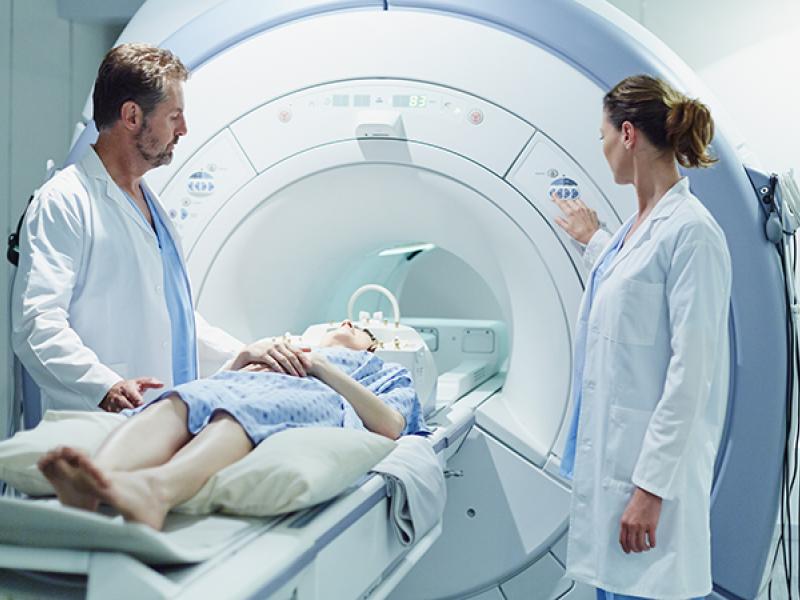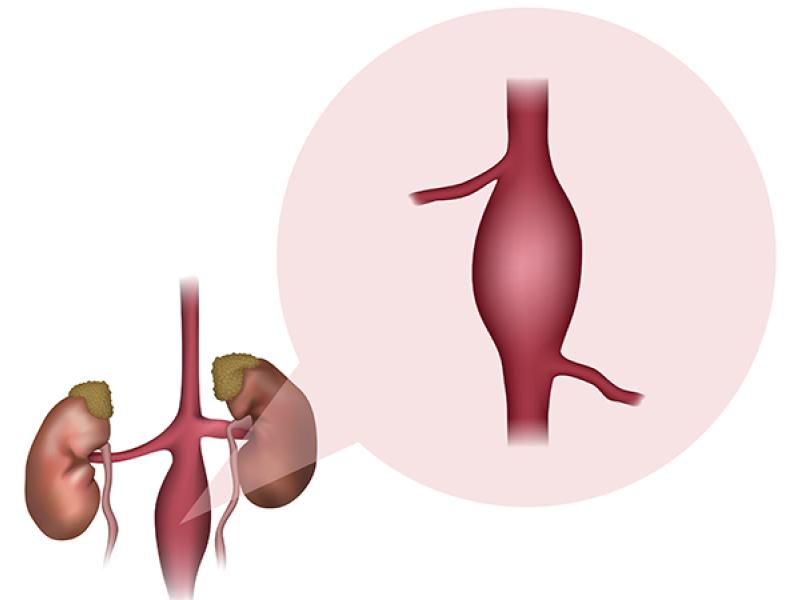The Clinical Cardiac Electrophysiology Fellowship in the University of Missouri School of Medicine’s Division of Cardiovascular Medicine is a two-year, ACGME-accredited program that provides advanced training in the evaluation, diagnosis, and management of cardiac arrhythmias. The program prepares fellows for independent practice in academic or community settings.
Electrophysiology care is delivered across three clinical sites: University Hospital and Harry S. Truman Memorial Veterans’ Hospital in Columbia, Missouri, and the Kansas City Heart Rhythm Institute in Overland Park, Kansas. Clinical services include arrhythmia evaluation and management, simple and complex ablation procedures, pacemaker, implantable cardioverter-defibrillator (ICD), and biventricular device implantation, and antiarrhythmic drug management.
Educational purpose
The fellowship is designed to develop advanced technical, procedural, and clinical decision-making skills in cardiac electrophysiology. Training emphasizes appropriate patient selection, procedural indications and contraindications, risk–benefit assessment, and alternative treatment strategies.
Fellows participate in all phases of patient care, including preprocedural evaluation, intraprocedural management, and postprocedural follow-up. Upon completion of the program, fellows are expected to independently evaluate patients and perform and interpret the full range of diagnostic and therapeutic electrophysiologic procedures.
Curriculum
Formal didactic sessions provide instruction in basic and clinical cardiac electrophysiology, clinical pharmacology, and the fundamentals of clinical research. Training is organized around three primary clinical experiences:
- Clinical electrophysiology laboratories
- ICD and pacemaker services
- Outpatient arrhythmia clinics
These experiences are structured to ensure achievement of all ACGME core competencies.
Weekly electrophysiology didactics are held Wednesdays from 7–8 a.m. Case conferences and a quarterly journal club are held Wednesdays from 5:45–6:45 p.m. Clinical training and research activities take place at all participating sites.
Clinical Training Structure
Each year of training is divided into 12 rotation blocks, with approximately 10% outpatient exposure per block. The first year includes a dedicated research rotation. Rotation schedules may be modified with approval from the program director.
Second-year training may include elective rotations in Advanced Heart Failure (50% outpatient) and research in place of electrophysiology laboratory rotations at University Hospital.
Program Highlights
- Early and continuous fellow participation in electrophysiology procedures, including cardiovascular implantable electronic device (CIED) implantation and ablation procedures
- Structured clinical research opportunities, with support for abstract and manuscript development
- High procedural volume of atrial fibrillation ablations, allowing early hands-on experience with transseptal access and left atrial mapping
- Training in radiation-free (fluoroless) left atrial ablation techniques
Application Process
Applications are accepted through the Electronic Residency Application Service (ERAS). The program accepts two fellows per year.
- Curriculum vitae
- Personal statement
- Three letters of recommendation, including one from your program director
- USMLE transcripts






